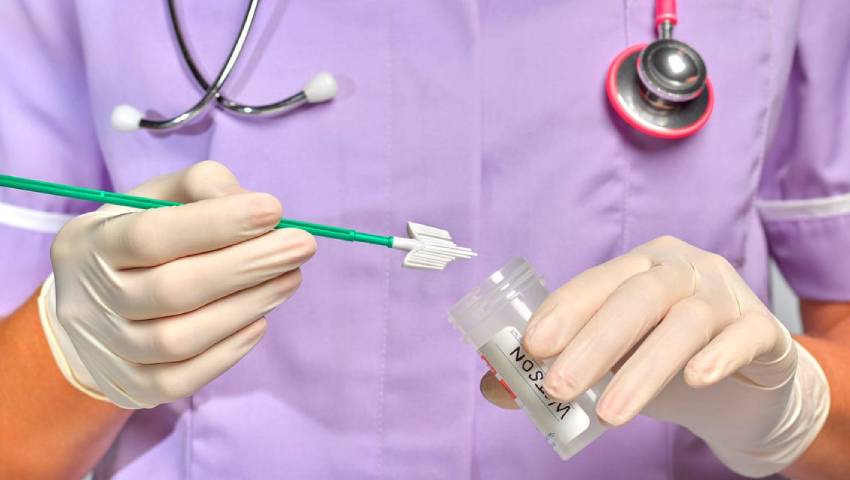Pap Smears are essential for cervical health, detecting abnormalities early to prevent complications. Consult a skilled gynaecologist for regular screenings and ensure proactive care for long-term well-being.
Women’s cervical health plays a vital role in their overall wellness, but most women only think about it when problems become severe. Regular Pap smear tests help gynaecologists monitor cervical health and find potential problems before they become serious. Women often neglect this simple screening test due to a lack of knowledge about its benefits or misconceptions about it. This article explains why Pap smears matter and how this testing process prevents cervical cancer.
What is a Pap Smear?
A Pap test functions as a routine test that examines the cervix for abnormal cell development. The cervix is the lower part of the uterus that connects to the vagina, and it is susceptible to changes caused by infections or other conditions. A Pap smear helps find abnormal cells early so doctors can stop cervical cancer from developing or treat it timely.
The test involves collecting a small sample of cells from the cervix using a swab or brush. These cells are then examined under a microscope to identify any abnormalities. The test takes only 10 minutes or less during your regular gynaecologist appointment. In Hyderabad, women have access to some of the best gynaecologists in Hyderabad, who ensure a comfortable and professional experience during Pap smear tests.
Why are Regular Pap Smears Important?
Pap smears are crucial for maintaining cervical health as they can detect:
- Precancerous Changes: These tests identify abnormal cell growth that could develop into cervical cancer if left untreated. Early detection means intervention can be initiated promptly, significantly reducing the risk of progression.
- Human Papillomavirus (HPV): HPV is the leading cause of cervical cancer. A Pap smear can detect changes caused by HPV, allowing for further investigation or preventive measures.
- Infections or Inflammation: Besides cancer, Pap smears can reveal infections or inflammation that might require medical attention.
Skipping regular screenings increases the risk of undetected issues, which may lead to severe health complications over time.
Who Should Get a Pap Smear?
The general recommendation is for women to start getting Pap smears at the age of 21, or earlier if they are sexually active. Depending on individual health factors, the frequency of these tests may vary:
- Women aged 21–29 should have a Pap smear every three years.
- Women aged 30–65 should consider co-testing with HPV screening every five years or continuing Pap smears every three years.
It is essential to discuss your medical history and risk factors with your gynaecologist to determine the appropriate screening schedule.
How to Prepare for a Pap Smear?
To ensure accurate results, there are a few simple guidelines to follow before undergoing a Pap smear:
- Avoid intercourse, douching, or using vaginal products for at least 48 hours before the test.
- Schedule the test for a time when you are not menstruating.
- Communicate any concerns or symptoms with your gynaecologist beforehand.
These steps help ensure the test provides the most accurate results possible.
What Happens During the Procedure?
During the test, you will be asked to lie on an examination table with your feet supported in stirrups. The gynaecologist will gently insert a speculum into the vagina to widen it, providing a clear view of the cervix. A small sample of cervical cells is then collected using a soft brush or spatula.
The lab processes the sample and provides test results back to the doctor in about two or three days.
What Do Pap Smear Results Mean?
Pap smear results are usually classified as either normal, unclear, or abnormal:
- Normal: No abnormal cells were detected, and you can continue routine screenings.
- Unclear: The sample may have shown slight abnormalities, but it doesn’t necessarily indicate a problem. Further testing may be required.
- Abnormal: Abnormal cells were found, which could range from mild changes to more severe precancerous conditions.
If abnormalities are detected, your gynaecologist may recommend additional tests, such as a colposcopy, to examine the cervix more closely.
For women in Hyderabad, trusted healthcare providers like Dr Rooma Sinha offer expert care and guidance, making it easier to prioritise cervical health.
Conclusion
Regular Pap smears serve as basic yet essential tools to combat cervical cancer. These tests help doctors find abnormal cells early so they can treat them before the condition becomes severe. Women can protect their cervical health through regular screenings and by also consulting the top urologist near me for guidance on overall pelvic and urinary health.
References
https://www.mayoclinic.org/tests-procedures/pap-smear/about/pac-20394841
https://www.cancer.gov/types/cervical/screening
https://www.acog.org/womens-health/faqs/cervical-cancer-screening
https://medlineplus.gov/cervicalcancerscreening.html
https://my.clevelandclinic.org/health/diagnostics/4267-pap-smear












